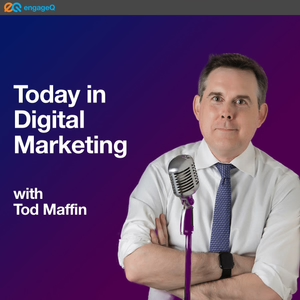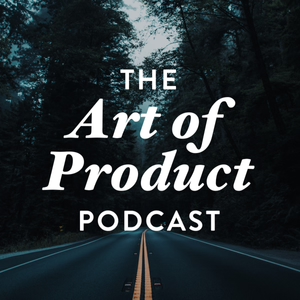
Episode 37: The one about electric tuktuks
06/23/23 • 50 min
ABOUT THIS EPISODE
Mobility for all means just that - it shouldn't be available only to those fortunate enough to be free of the physical or financial impairments that might prevent access to mobility. Yet one billion people - an eighth of the world's population - survive on less than $2/day. They desperately need electric power - and affordable personal mobility.
This episode of Ride: The Urban Mobility Podcast is all about the provision of clean, affordable mobility in emerging markets. Our three expert guests for this episode dedicate their time to delivering just that:
- Dr Chris Borroni-Bird, founder of Afreecar LLC
- Prodip Chatterjee, co-founder of Nunam
- Sukhjeevan Uppal, Chief Technology Officer at eTukTuk
- Next-generation tuktuks - and more, including bicycles and handcarts;
- Electrifying mobility in emerging markets;
- Developing affordable vehicles;
- New mobility business models - including the use of blockchain;
- And the role that could be played by used electric vehicle batteries.
Dr Chris Borroni-Bird, founder of Afreecar LLC, has developed advanced vehicle concepts and technology at General Motors, Qualcomm, and the Google Self-Driving Project that became Waymo. His latest project, Afreecar, is a philanthropic initiative which seeks to provide affordable mobility to people in Africa who can't afford a car
Connect with Chris on LinkedIn
Prodip Chatterjee is co-founder of Nunam, a German-Indian start-up that develops affordable energy storage solutions using second life batteries. With Audi, Nunam has been exploring the potential for used EV batteries to electrify rickshaws in India
Connect with Prodip on LinkedIn
Sukhjeevan Uppal is Chief Technology Officer at eTukTuk, a company whose name appears to describe what it does, namely, make electric tuktuks - but as you'll hear in this episode, there's more to it than that
Connect with Sukhjeevan on LinkedIn
You can subscribe to Ride: The Urban Mobility Podcast wherever you get your podcasts. Feel free to share it, like it, give it a rating, sign up to the Ride LinkedIn page, and check out our website, ridemobilitypodcast.com.
ABOUT THIS EPISODE
Mobility for all means just that - it shouldn't be available only to those fortunate enough to be free of the physical or financial impairments that might prevent access to mobility. Yet one billion people - an eighth of the world's population - survive on less than $2/day. They desperately need electric power - and affordable personal mobility.
This episode of Ride: The Urban Mobility Podcast is all about the provision of clean, affordable mobility in emerging markets. Our three expert guests for this episode dedicate their time to delivering just that:
- Dr Chris Borroni-Bird, founder of Afreecar LLC
- Prodip Chatterjee, co-founder of Nunam
- Sukhjeevan Uppal, Chief Technology Officer at eTukTuk
- Next-generation tuktuks - and more, including bicycles and handcarts;
- Electrifying mobility in emerging markets;
- Developing affordable vehicles;
- New mobility business models - including the use of blockchain;
- And the role that could be played by used electric vehicle batteries.
Dr Chris Borroni-Bird, founder of Afreecar LLC, has developed advanced vehicle concepts and technology at General Motors, Qualcomm, and the Google Self-Driving Project that became Waymo. His latest project, Afreecar, is a philanthropic initiative which seeks to provide affordable mobility to people in Africa who can't afford a car
Connect with Chris on LinkedIn
Prodip Chatterjee is co-founder of Nunam, a German-Indian start-up that develops affordable energy storage solutions using second life batteries. With Audi, Nunam has been exploring the potential for used EV batteries to electrify rickshaws in India
Connect with Prodip on LinkedIn
Sukhjeevan Uppal is Chief Technology Officer at eTukTuk, a company whose name appears to describe what it does, namely, make electric tuktuks - but as you'll hear in this episode, there's more to it than that
Connect with Sukhjeevan on LinkedIn
You can subscribe to Ride: The Urban Mobility Podcast wherever you get your podcasts. Feel free to share it, like it, give it a rating, sign up to the Ride LinkedIn page, and check out our website, ridemobilitypodcast.com.
Previous Episode

Episode 36: Designing the future of mobility, feat. Dan Sturges
GUESTS: Dan Sturges and Lukas Neckermann
ABOUT THIS EPISODE
Lifelong car fan and vehicle designer Dan Sturges discusses his new book, ‘Near to Far: A design for a new equitable and sustainable transportation system’. The book is both the culmination of a life in vehicle design and the automotive industry, and something a manifesto for the future of mobility.
You’ll note the reference to Dan being a car fan, but not a petrolhead, for reasons that will become clear.
The list of organisations which he has worked is long; a transportation designer, entrepreneur, and educator, his career started as an automobile designer at General Motors, and has since included time at, among others, ITS at UC Davis, GEM cars, Segway, Calstart, IntraGO, Local Motors, Acorn Delivery, and the US Transportation Research Board committee for New Public Transportation Systems and Technology.
Dan has become increasingly disillusioned by the increase not just in the number of vehicles on the road, but also the size of those vehicles, many of which are disproportionately large for everyday use. And it’s that term, everyday use, which Dan seeks to address in his book. The references to vehicle size here lean towards what’s offered to North American buyers, but even in Europe, it's difficult to think of a vehicle that got smaller from one generation to the next.
In this episode, Dan talks about how you can be a mobility advocate and a car fan – they’re not mutually exclusive; how car designers can help in the transition from ownership to usership; and why the transition is impossible without a holistic mobility ecosystem that incorporates new vehicles, new infrastructure, and new business models.
Also on this episode is Lukas Neckermann, of Neckermann Strategic Advisors – Lukas is, as many listeners will know, a major advocate of urban mobility, and like Dan, has a background in the automotive industry.
EPISODE NOTES
You can learn more about Dan's book - Near to Far: A design for a new equitable and sustainable transportation system - by following this link, and by checking local Amazon stores for availability.
ABOUT THE GUESTS
Dan Sturges
Dan is a mobility designer, educator, and entrepreneur. Learn more about Dan here - and connect with him on LinkedInLukas Neckermann
Lukas is a consultant, speaker, mobility advocate and the author of several books on the future of mobility.
Learn more about Neckermann Associates here
Connect with Lukas on LinkedIn
You can subscribe to Ride: The Urban Mobility Podcast wherever you get your podcasts. Feel free to share it, like it, give it a rating, sign up to the Ride LinkedIn page, and check out our website, ridemobilitypodcast.com.
Next Episode

Episode 38: Inside the 15-minute city, with Carlos Moreno
GUEST: Professor Carlos Moreno
ABOUT THIS EPISODE
When we first conceived the Ride podcast, one of the topics at the top of the list was the 15-minute city. This episode features an interview with Professor Carlos Moreno of the Pantheon-Sorbonne in Paris, the man credited with conceiving the 15-minute city.
Until just a few years ago, the 15-minute city was a compelling urban planning theory around which new and future mobility solutions would be developed. It was only really known about by mobility nerds.
The idea of the 15-minute city is ambitious, yet simple: citizens and communities should have everything they need in daily life - such as work, recreation, shops, public services - within a 15-minute walk or bicycle ride from home or any point in the city.
But in the last couple of years, the 15-minute city has gone on to become mainstream news, a highly controversial issue which has divided communities, with views often unsurprisingly matching political affiliation - and it’s attracted the ire of conspiracy theorists and tabloid media in particular.
But it’s a concept that’s widely misunderstood, by the public and by urban planners alike, and it’s frequently bundled into, or confused with often unpopular or poorly conceived traffic and transport policies. As a result, the term 15-minute city has become a synonym for a so-called war on motorists.
This interview has been rescheduled a couple of times, and our interest in speaking to Professor Moreno has changed from initially wanting to find out more about the concept, to asking why he thinks it’s become so controversial, and to give him the opportunity to present his side of the story.
You can subscribe to Ride: The Urban Mobility Podcast wherever you get your podcasts. Feel free to share it, like it, give it a rating, sign up to the Ride LinkedIn page, and check out our website, ridemobilitypodcast.com.
If you like this episode you’ll love
Episode Comments
Generate a badge
Get a badge for your website that links back to this episode
<a href="https://goodpods.com/podcasts/ride-the-urban-mobility-podcast-225432/episode-37-the-one-about-electric-tuktuks-31136147"> <img src="https://storage.googleapis.com/goodpods-images-bucket/badges/generic-badge-1.svg" alt="listen to episode 37: the one about electric tuktuks on goodpods" style="width: 225px" /> </a>
Copy




